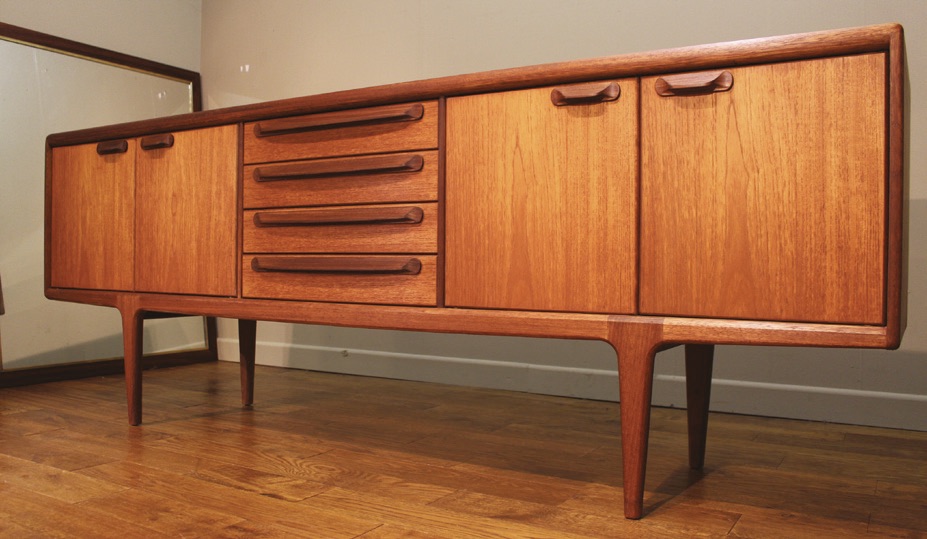Guide to Valuing an Estate for Probate
It is an unfortunate fact that the loss of a loved one will always involve a series of essential administrative tasks, one of the most important of which is probate. Mark Gilding, director of Gildings Auctioneers, explains what is involved in valuing an estate for probate and deciding what should be done with the deceased person’s possessions.
Dealing with an estate
 Most people stipulate where they would like their possessions to go in the event of their death, making special provision for items of significant sentimental or monetary value. However, this is not always the case, and even when it is, a person may leave a significant amount of possessions such as furniture, jewellery, art and collectibles unaccounted for.
Most people stipulate where they would like their possessions to go in the event of their death, making special provision for items of significant sentimental or monetary value. However, this is not always the case, and even when it is, a person may leave a significant amount of possessions such as furniture, jewellery, art and collectibles unaccounted for.
As a result, acting as an executor can be a challenging process, particularly in the following circumstances:
- Family members disagree about who should have certain possessions or whether these items should be kept in the family, given away or sold.
- Family members feel an obligation to keep items they feel the deceased person would like to stay in the family, although they may not have space for them and may need the money.
Every death creates a unique set of circumstances with its own set of decisions to be made. However, in the common situation where items that are not specified in the will need to be distributed, a valuation for probate is the crucial first step.
Instigating the probate process
Where there is a will in place, the named executors must apply for a grant of probate to gain legal permission to deal with the deceased person’s estate. In most cases, this is a simple formality, although unfortunately, there are currently reports of delays due to the extra number of cases created as a result of Covid-19.
Defining value
Before you can make any decisions about an estate, it’s important to establish what the items in question are worth. Sentimental value will always be subjective, but knowing the probate value of possessions is necessary, even when emotionally difficult decisions need to be made further down the line.
Valuing items like furniture, jewellery, memorabilia, art and collectibles for probate is different to valuing them for insurance purposes. An insurance valuation is calculated at the cost of replacing the item at its retail value. Probate value is the amount an item could reasonably expect to fetch at auction or through another means of open market sale.
Although it’s not uncommon for sought-after items to match or even exceed the retail value of an item at auction, probate value will always reflect a realistic price that an item may fetch on the day. An experienced and knowledgeable valuer will be able to advise on any valuable or rare item that should be treated separately to a house clearance consignment. They will also be able to provide insurance valuations for any items you decide to keep in the family.
What to expect from a probate valuation
 Any reputable auctioneer will provide a professional and understanding approach at a difficult time. In most cases a home visit will be necessary. It’s important to allow plenty of time and to prepare by writing down any questions you may have.
Any reputable auctioneer will provide a professional and understanding approach at a difficult time. In most cases a home visit will be necessary. It’s important to allow plenty of time and to prepare by writing down any questions you may have.
Before contacting a valuer, check they are a member of a professional body like NAVA Propertymark. You can expect the following process:
- Initial discussion and instruction
- Terms of engagement and Covid-safe document
- Visit to usually take place within five working days
- Completed valuation usually within a further five working days (depending on amount of research to complete)
The executors of the estate or a nominated representative must be present for the probate valuation. It can also be a good idea for family members with a vested interest to be there too. Alternatively, the written valuation can be circulated afterwards, on the understanding that anyone involved can follow up with the valuer.
Selling an estate at auction
There should be no obligation to sell items at auction that have been valued for probate by an auctioneer. However, should you decide to sell all or part of an estate at auction, the auctioneer who valued the estate will advise on the next steps including:
- Consignment: identifying a suitable upcoming auction for your goods to be sold at and confirming whether you wish to set a minimum reserve price
- Transportation: arranging for the goods to be delivered to the auction house
- Cost: you can expect to pay commission of around 15% – 20%.
As well as providing a Covid-secure home visit service to provide advice and valuations of personal property, most auctioneers can also arrange contact-free consignments and deliveries for sales. Also, although most auctions continue to take place online only, the good news is that sale results are unaffected by the closure of salerooms, with auction houses across the UK reporting healthy sales and also an increase in enquiries since lockdown has eased.
What are the costs?
As well as the selling fees, the following areas need to be considered:
- All charges are usually subject to VAT
- Some auctioneers, including Gildings, will waive the valuation fee if you subsequently decide to sell with them
- You will need adequate insurance for the transportation of the goods or loss or damage whilst in the possession of the auctioneer
- You may be liable for other charges such as lot fees, photography and storage.
As the executor, it’s important to get a clear idea of all costs upfront, and again, a reputable valuer and auctioneer will provide this.
Setting expectations

When selling an estate, it’s important to realise that items may not always reflect the perceived value of those who have left them behind. For example, this is often the case when it comes to furniture. Due to changing tastes and issues of space, it is common for families to decide to sell large pieces of antique furniture. However, partly due to the trend for more modern pieces, the market for antique furniture has dwindled severely, with mid-century teak furniture now far more likely to recoup or exceed its original cost.
Most items can be sold as single lots, however occasionally your auctioneer will advise on a job lot sale for items they judge will not attract much interest on their own. For example, ornaments such as Royal Doulton bone china figurines would consistently make good money in the 1980s, but due to changing fashions, will not attract much attention now and are more likely to sell as a package.
Quality counts
No matter what you ultimately decide to do with an estate, finding a reputable and experienced valuer to value it for probate is always the vital first step in the process that will lead to an informed and respectful approach to dealing with a deceased person’s belongings.
About the author
Mark Gilding has over 25 years’ experience working at family-owned Gildings, which is celebrating its 40thanniversary in 2020. He conducts most of the company’s home visits and is a member of NAVA Propertymark. For more information, visit www.gildings.co.uk.


